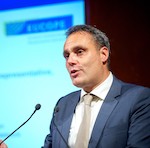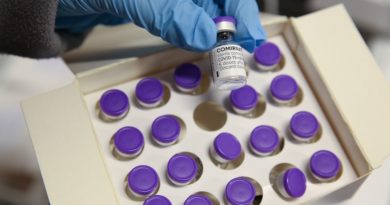
Driving towards or away from innovation?
How the EU Pharmaceutical Package impacts smaller companies and orphan developers
The EU Pharmaceutical Package represents a unique opportunity to build on the success of the existing rules and create a competitive and innovative healthcare ecosystem over the next two decades and beyond. Impacting how every therapy approved in the EU, ranging from evidence generation to regulatory pathways, approval timelines and incentives, the revision introduces numerous provisions that will streamline and digitize regulatory process, and improve the functioning of the biopharmaceutical ecosystem.
The proposed Package will also revise the incentive framework for both innovative medicines and orphan medicinal products (OMPs).
Providing adequate incentives to small and mid-sized companies, the key drivers of biopharmaceutical innovation, is a vital pre-condition to address underserved areas and ensure patients’ access to ground-breaking therapies.
Overall, the European Commission’s proposal continues to be very concerning with several of these provisions creating significant negative implications for industry, especially smaller companies, and the predictability of the ecosystem.
Orphan Market Exclusivity (OME)
A key change to the orphan system is a reimagination of the orphan market exclusivity (OME) framework – the incentive awarded to a developer that markets a therapy for an orphan indication. Venturing away from a one-size-fits-all approach, where all orphan therapies receive 10 years of OME, the proposal will see reductions to their baseline period, and modulation upon certain conditions that are difficult to fulfil and will de facto create unpredictability in the ecosystem.
The new approach proposed by the Commission does not address the core challenges that would encourage the development of therapies for rare diseases with no treatment options. By reducing baseline incentives and increasing unpredictability, the proposed modulation of OME will hinder innovation, reduce investments and, therefore, make the EU less competitive and attractive to innovative companies. Instead, we would suggest another modulated approach, based on five principles, such as the investment case and chance of therapeutic success, developed by the multi-stakeholder OD Expert Group.
(High) Unmet Medical Need (HUMN)
One of the key focuses of the EU Pharmaceutical Package is addressing unmet medical needs within the EU market. Frequently, UMN is regarded as relating to a condition for which there exists no satisfactory method of diagnosis, prevention, or treatment. Aware of the fact that different needs exist in the rare disease space and to prioritize the development and availability of innovative medicines for rare diseases, the Commission has proposed to link orphan incentives to the concept of HUMN.
While this objective aims to improve development of new therapies where no effective options exist, it will present challenges for smaller companies and overlook other patients that would benefit from innovative therapies.
In order for companies to demonstrate that a medicinal product addresses a HUMN, developers must generate supporting evidence at very early stage of development. By setting criteria and stringent requirements to identify medicinal products addressing HUMN, the European Commission fails to take a holistic perspective.
With its restrictive definition, this concept will have an adverse effect on innovation, while ignoring different patient populations, and restricting the longevity of the legislation. The latter refers to the fact that HUMN constantly evolve with science and society, thus a definition in legislation would not stand the test of time. A modulated approach that reflects the probability of therapeutic success and rewards it accordingly, would actually encourage developers to continue to invest in underserved areas and launch within the EU. Beyond incentives, a HUMN definition creates an actual ranking of patients and ‘stamps’ therapies with a label at a very early stage of development. Those products without a (H)UMN stamp are likely to face significant downward pricing pressures or reduce their commercial viability, leading smaller developers to look away from Europe.
Orphan drug developers should be encouraged to maximise the impact of the research and knowledge they develop, and find additional uses for existing compounds, especially if this opens the door for those patients with no other options. Defining (H)UMN in legislation could have unintended consequences for developers and hamper R&D, leading to diminished therapeutic innovation and patient access, and lesser reward for smaller innovative companies.
Which way to innovation?
The EU Pharmaceutical Package brings both opportunities and challenges for biopharmaceutical companies operating in or considering expansion into the European Union. While the legislation aims to foster innovation, enhance patient access to medicines and promote public health, smaller companies will face various hurdles. These challenges include a reduction and conditional modulation of incentives, therefore making investments more unpredictable and riskier.
This increased effort to apply a downward pressure on pricing in the EU, will have major consequences on the ability and willingness of companies to bring products to the market and shape research priorities for decades to come.
Small and mid-sized companies are the key drivers of life science innovation but without proper investment and incentives, sadly, they may be forced opt to venture elsewhere.
While the legislation will take several years before being adopted and start applying, it will have an impact on all health technology developers – small, medium and big – for at least two decades after its entry into application. Now is the time to strengthen our past successes and forge the right path towards a sustainable ecosystem that promotes investment and innovation while increasing patients’ access to advanced therapies in Europe.
About EUCOPE
For 15 years, the European Confederation of Pharmaceutical Entrepreneurs (EUCOPE) has been the voice of small to mid-sized health technology companies in Europe. Representing 2600+ innovative biopharmaceutical companies directly or through national associations, EUCOPE advocates for sound public policy that supports innovation, while fostering a community built on a shared purpose: improving and saving the lives of European patients through innovative therapies and medical technology. Learn more at www.eucope.org




